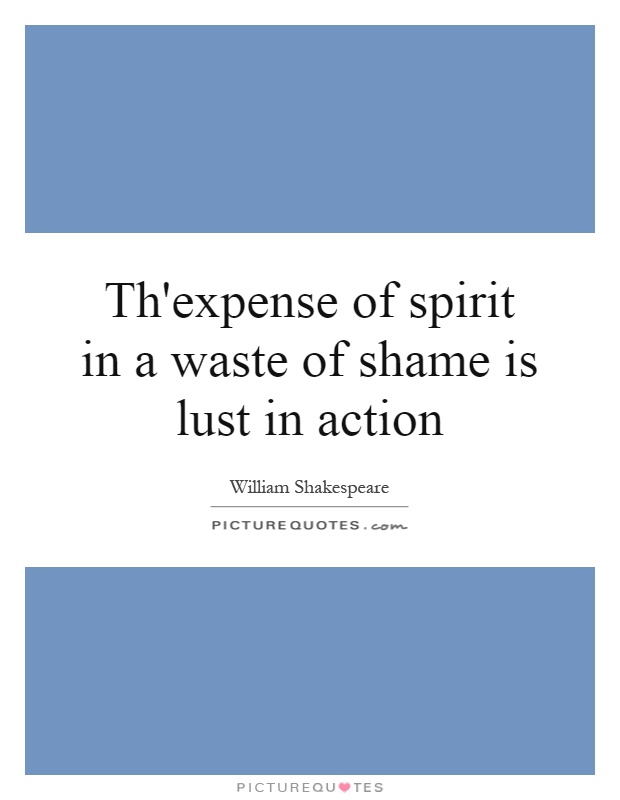Th'expense of spirit in a waste of shame is lust in action

Th'expense of spirit in a waste of shame is lust in action
In William Shakespeare's sonnet 129, the line "Th'expense of spirit in a waste of shame is lust in action" delves into the destructive nature of lust and its impact on the human spirit. This line encapsulates the idea that indulging in lustful desires can drain one's energy and lead to feelings of shame and regret.Shakespeare explores the concept of lust as a powerful force that can consume a person's spirit and lead them down a path of self-destruction. Lust, in this context, is not just a physical desire, but a deep-seated craving that can cloud one's judgment and lead to reckless behavior. The "waste of shame" refers to the emptiness and guilt that often follow indulging in lustful acts, highlighting the fleeting nature of pleasure and the lasting consequences of giving in to base desires.
The phrase "Th'expense of spirit" suggests that the pursuit of lust requires a significant investment of one's emotional and mental energy. This expenditure can leave a person feeling drained and depleted, as they become consumed by their desires and lose sight of their higher values and principles. The word "spirit" here could also refer to one's moral integrity and sense of self, which can be eroded by the destructive effects of lust.
Shakespeare's exploration of lust in this sonnet reflects a broader theme in his work of the complexities of human desire and the consequences of giving in to temptation. Lust, in particular, is portrayed as a force that can lead to moral decay and spiritual emptiness, highlighting the importance of self-control and moderation in the face of powerful urges.
Overall, Shakespeare's line "Th'expense of spirit in a waste of shame is lust in action" serves as a poignant reminder of the destructive power of lust and the toll it can take on the human spirit. It urges readers to reflect on the consequences of their actions and the importance of maintaining a sense of moral integrity in the face of temptation.












 Friendship Quotes
Friendship Quotes Love Quotes
Love Quotes Life Quotes
Life Quotes Funny Quotes
Funny Quotes Motivational Quotes
Motivational Quotes Inspirational Quotes
Inspirational Quotes